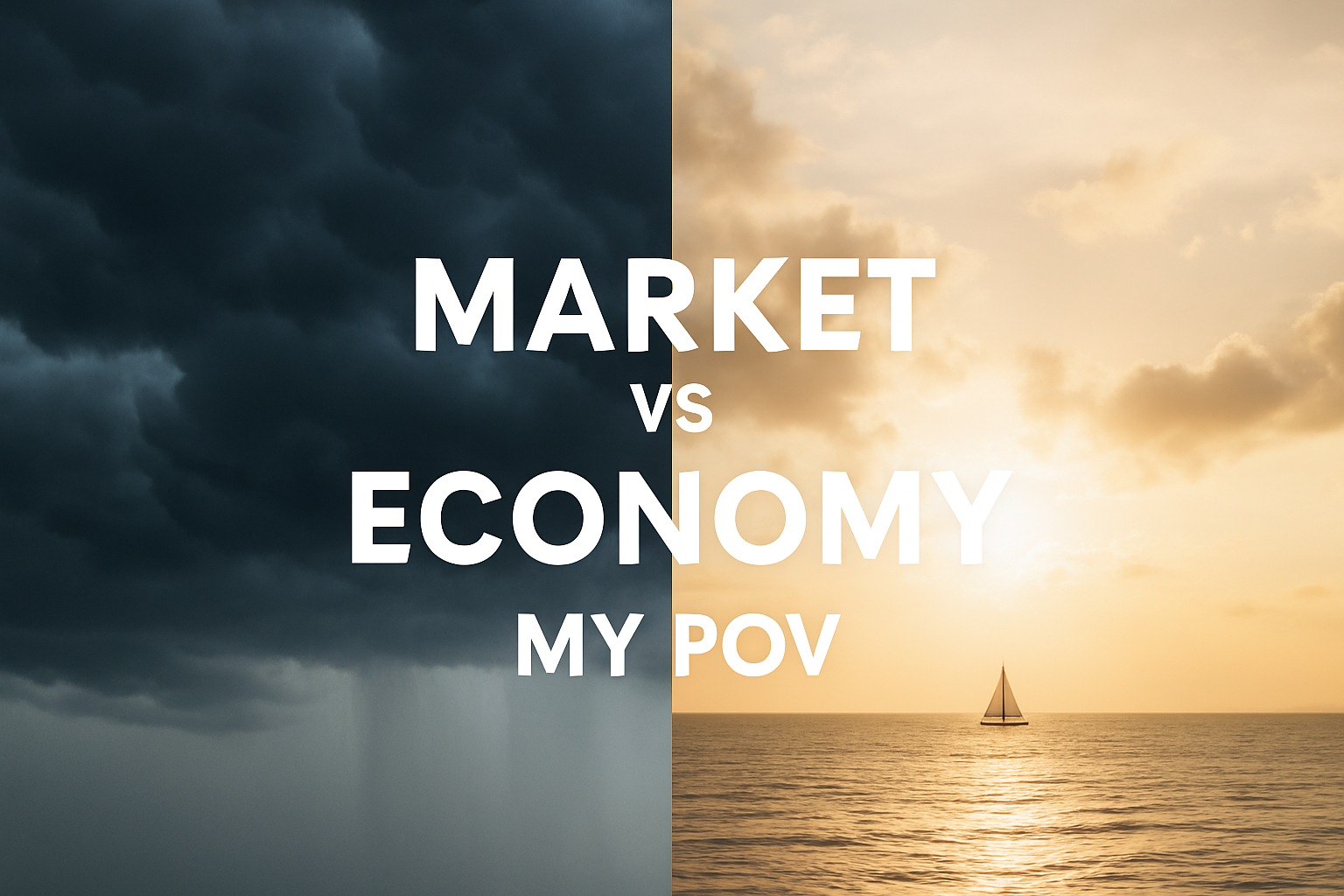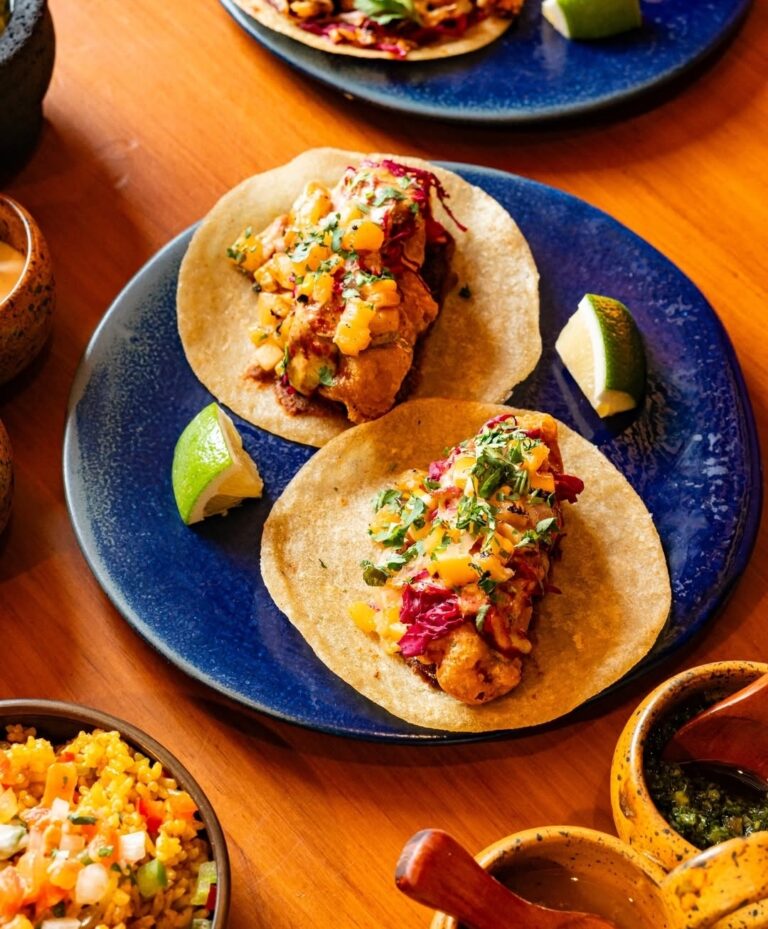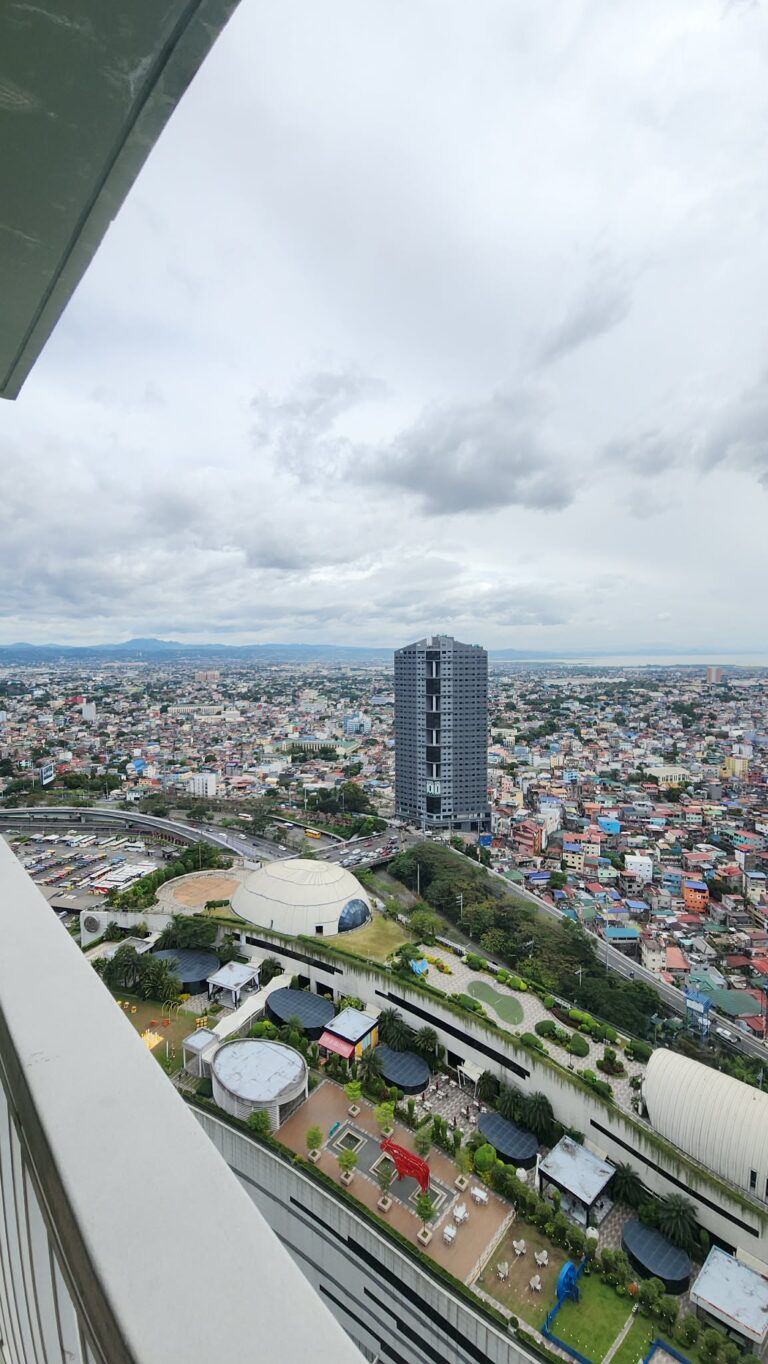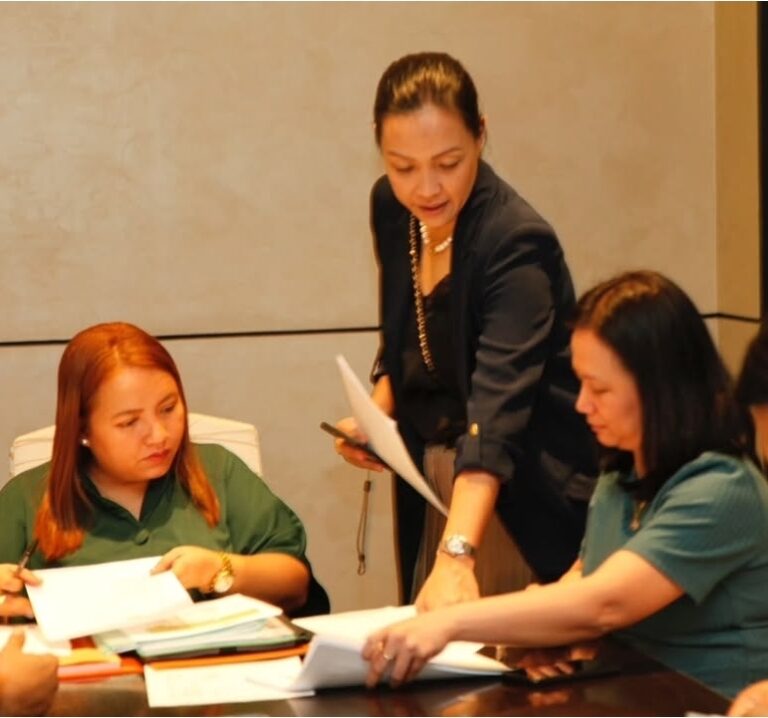People often ask me, “How’s the market?”
And I’d usually ask back, “Do you mean the market… or the economy?”
Because those two are not the same thing.
Let me try to explain in simple terms — the way I understand it.
The market is moody.
It reacts quickly — sometimes too quickly.
It can be excited, nervous, or emotional — depende sa headlines.
Right now, and always, it reacts to everything: calamities, political noise, corruption scandals, and the latest issue on flood control.
The market is like the weather — one minute it’s sunny, the next it’s raining, sometimes there’s a typhoon, and recently, even earthquakes.
The market is like our friend Marites — it reacts every time may bagong balita or chismis.
The economy, on the other hand, reflects the real flow of money, jobs, remittances, and spending.
It’s not easily swayed by headlines.
If the market is like the weather, then the economy is like our climate.
In the Philippines, we only have tag-init and tag-ulan.
In other countries, they have four seasons.
You can’t control them, but you know they’re coming — so you adapt and prepare.
Right now, the Philippine market is standing, but under so much pressure.
The news we hear every day creates fear and uncertainty among investors — just as it always has, through every crisis we’ve faced. We have a lot of brothers and sisters who we need to help because of the recent earthquakes and typhoons.
But despite that, our economy remains strong.
And here’s my POV, based on what I’ve seen over the past two decades in real estate:
Since I started in 2005, just like every Filipino, I’ve seen and experienced a lot:
The 2008 global financial crisis, the 2020 pandemic, inflation spikes, political shifts, impeachments, protests, earthquakes, volcanic eruptions, typhoons, floods and many more.
And yet, through it all, one thing stays the same:
Every Filipino, regardless of status, wants a better life for their family.
Education has always been a top priority.
Each family, even with limited income, will do everything to send their children to school.
It’s why we’ve become a global exporter of talent — teachers, nurses, engineers, seafarers, caregivers, artists — you name it.
Our modern-day heroes, sacrificing themselves for a better future for their families.
Our median age is just 25 years old.
That is our productive age.
It means most Filipinos are young, working, earning, spending, and saving.
We’re one of the most consumption-driven economies in Asia (according to PSA and World Bank) — buying food, gadgets, clothes, paying rent, commuting, and eventually saving for bigger goals like buying a car or a home.
Owning a home is deeply cultural for us.
In 2024, Boston Consulting Group released a report that owning a home ranks among the top aspirations of every Filipinos. Locally, most of us start by renting or living with family, then work hard to save for a place we can call our own.
There are over 10 million Filipinos abroad, sending money back home — not just for tuition or daily needs, but to buy homes for them and their families.
In 2023, one PH developer alone sold over ₱14 billion worth of properties overseas.
One developer pa lang yan — and all that money flows back into our economy.
And in 2024, overseas remittances hit a record-breaking $37.2 billion, expected to rise even higher in 2025.
That’s ₱2.16 trillion (₱2,157,600,000,000) for 2024 alone!
An incredible amount of money flowing straight into Filipino households — for tuition, food, homes, and investments.
That’s one of the biggest reasons our economy stays strong, even when the market feels shaky.
Despite the corruption we all hear about, there’s still real progress happening. Natatabunan ng mga headlines.
Infra is happening.
Roads, bridges, railways, schools, and health centers are being built through partnerships between government and the private sector — both local and international.
Not just in major cities, but all over the Philippines.
We’re still catching up with our neighbors, but we’re getting there.
The continuity from PNoy’s PPP, PRRD’s Build Build Build (and NTF-ELCAC, which for me had a real economic impact), and BBM’s Build Better More is something to be thankful for.
At least, we’re moving forward.
So for me, while the market goes up and down depending on headlines,
the economy — the daily lives and spending power of Filipinos — remains strong.
After two decades in real estate, I’ve learned that no president, policy, or calamity can define my journey — unless I let it.
I’d often hear people say, “If that person wins, I’m leaving the country.”
Some do, but most stay.
The market may sway with every headline, but my goals, discipline, and perspective will always matter more.
Like every Filipino, I dream of a better life for my family and a home we can call our own.
And I’m grateful that God placed me in this industry —
where sometimes, I even spot a great deal that my husband and I and our friends and clients can take advantage of (like that Nuvali property I pay for only ₱11k/month!).
As my favorite Rex Mendoza says:
“The most important factors to consider are within you — your goals, your portfolio, your time horizon. Remember, you never control the weather. You always control your ship.”
🙏 Dear Lord, please help us weather the storm — just like You always do.




